 Just yesterday, I was browsing the bottled water section at Whole Foods when I came across a new brand with a really cool looking logo and labels that read “Joy”, “Peace”, “Health”, and “Prosperity” featuring instructions to visualize this intent while drinking the contents. Intrigued, I bought some and brought it home. It tasted fresher and cleaner than other waters – and hopefully my chosen intent (Prosperity, of course), will manifest.
Just yesterday, I was browsing the bottled water section at Whole Foods when I came across a new brand with a really cool looking logo and labels that read “Joy”, “Peace”, “Health”, and “Prosperity” featuring instructions to visualize this intent while drinking the contents. Intrigued, I bought some and brought it home. It tasted fresher and cleaner than other waters – and hopefully my chosen intent (Prosperity, of course), will manifest.
Now, my curiousity was piqued even more so I chose to visit the company website. H2OM has a very interesting story to tell. The water itself comes from a natural spring water source in San Diego, from the 420,000 acre Cleveland National Forest. Bedrock mortars and metates indicate that Native Americans have enjoyed this spring for over 14,000 years – and it is filtered to a depth of 300 feet before rising to the surface through the hardened granite.
The company then treats it with UV light, submicron filters it, and cleanses it with Ozone which is MUCH more efficient than chlorine at removing bacteria. The water is then treated with audio frequencies, sounds, music,color and light according to its intended purpose.
Scientific studies have shown that water is impressionable, and can hold intent or thought frequencies. As our bodies are 90% water, it makes sense to me that drinking this kind of water could have a positive impact.
Also from the company website:
“A portion of our proceeds will benefit the International Water for Life Foundation, the Love Planet Foundation, an environmental education organization dedicated to the protection of the planet for future generations.”
Awesome! And it was reasonably priced to boot.

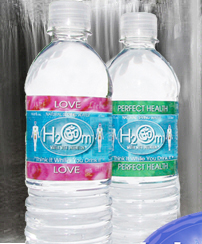
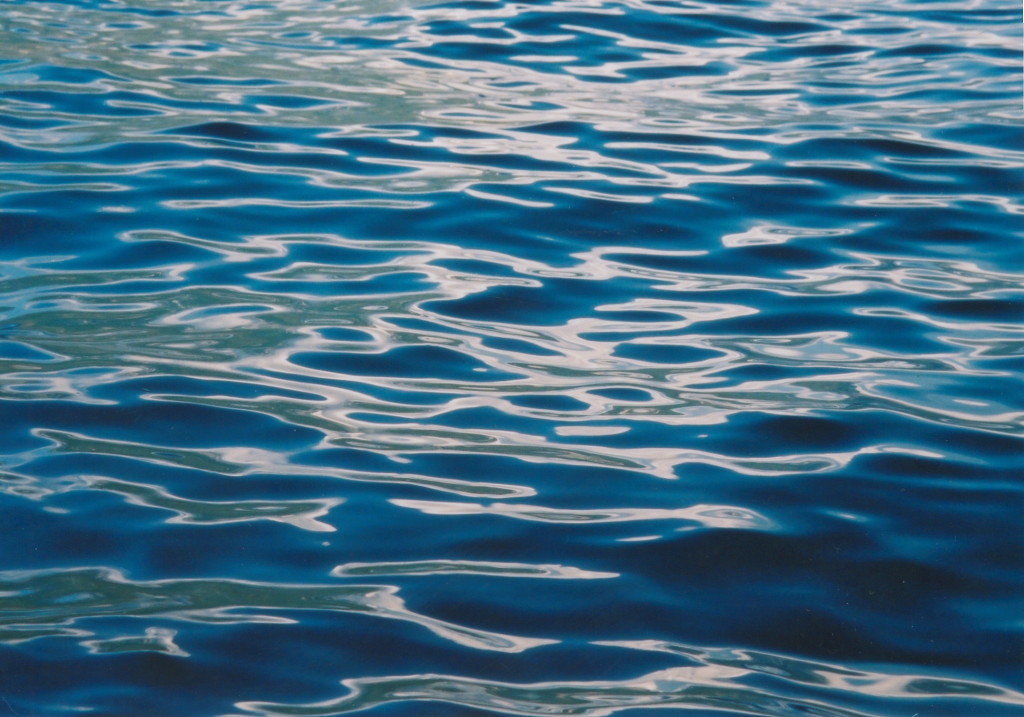

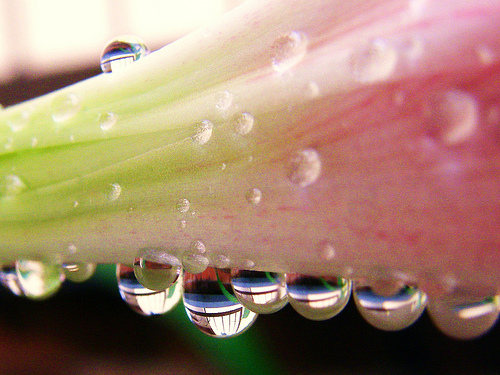
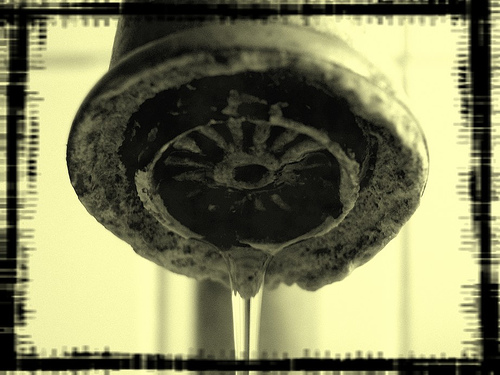
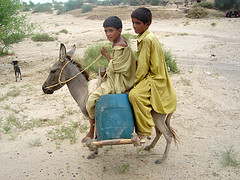

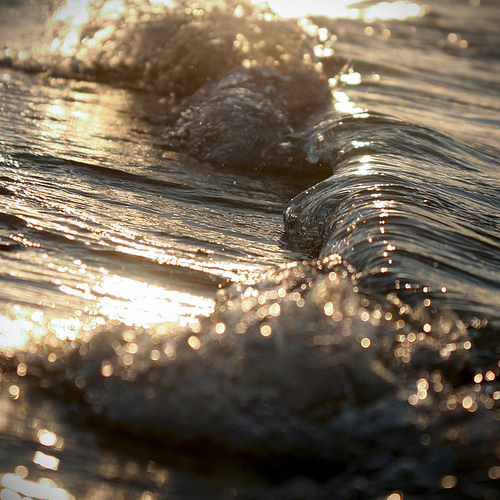
I have also tried it and I LOVE IT! It is such a great reminder for me when I have the bottles around. Also the water tastes soooo good. I’m kind of a water snob and this is so pure and clean tasting. I highly recommend H2Om. It’s a great company and a great water!
I have also tried it and I LOVE IT! It is such a great reminder for me when I have the bottles around. Also the water tastes soooo good. I’m kind of a water snob and this is so pure and clean tasting. I highly recommend H2Om. It’s a great company and a great water!
You are wasting your money. It’s all marketing hub-bub. Drink filtered tap water, smile, and think of all the money you’re saving. Also, think about sticking it to the money-grubbers that will sell anything. Next: Bottled air from pollution-free Antartica; micro-filtered, exposed to good vibes, and harmonized to bring great fortunate to everybody who gives it a good inhale!
You are wasting your money. It’s all marketing hub-bub. Drink filtered tap water, smile, and think of all the money you’re saving. Also, think about sticking it to the money-grubbers that will sell anything. Next: Bottled air from pollution-free Antartica; micro-filtered, exposed to good vibes, and harmonized to bring great fortunate to everybody who gives it a good inhale!
What makes one so cynical? Especially in a time that the universe is supporting change and conscious awakening. maybe you hit the snooze button on your awakening. I think this H2Om water is great! And it costs less than most of the purified tap waters(municipal free pharmaceuticals and fluoride). I’m all for the positive vibes!
What makes one so cynical? Especially in a time that the universe is supporting change and conscious awakening. maybe you hit the snooze button on your awakening. I think this H2Om water is great! And it costs less than most of the purified tap waters(municipal free pharmaceuticals and fluoride). I’m all for the positive vibes!
‘Socially conscious bottled water’ is an oxymoron. There is absolutely no reason for anyone who cares about the environment to drink bottled water, period. It’s not cynicism; it’s realism. Our planet cannot support the waste generated by the gazillion tons of bottled water that this earth’s population consumes. Drink tap water. If, like us, your water (well water in our case) is not fit for drinking, you can always fill up re-usable jugs at a friend or relative’s house.
‘Socially conscious bottled water’ is an oxymoron. There is absolutely no reason for anyone who cares about the environment to drink bottled water, period. It’s not cynicism; it’s realism. Our planet cannot support the waste generated by the gazillion tons of bottled water that this earth’s population consumes. Drink tap water. If, like us, your water (well water in our case) is not fit for drinking, you can always fill up re-usable jugs at a friend or relative’s house.
OK, and about all that plastic…? You got punked! common man is right — it’s all a slick marketing gimmick. Bottled water is one of the worst trends in human history.
By the water, if you’re 90% water, I’m concerned for your health. Typical human is 58-60ish%.
Heh, by the WAY, not by the water. I have water on the brain!
OK, and about all that plastic…? You got punked! common man is right — it’s all a slick marketing gimmick. Bottled water is one of the worst trends in human history.
By the water, if you’re 90% water, I’m concerned for your health. Typical human is 58-60ish%.
Heh, by the WAY, not by the water. I have water on the brain!
I don’t think it’s cynical to recognize that water should not be sold in bottles, regardless of any good intentions. I can’t imagine such a thing as socially conscious bottled water.
I don’t think it’s cynical to recognize that water should not be sold in bottles, regardless of any good intentions. I can’t imagine such a thing as socially conscious bottled water.
I totally agree. Water should be safe enough to not be sold in bottles. But the fact is. 44 million households (including those with reverse osmosis filters) had traces of pharmecuticals, anti convusion medication and mass quantities of flouride when tested. Perhaps H2om’s idea is to get it in the hands of people who are still drinking bottled water. (like me) Instead of Aquafina in their hand, they have something that reminds them to recycle, or to have a moment of being aware of the energy they put out. I like the fact that they (H2Om) completely offset their carbon footprint and make it a point to educate on world water issues and recycling.
I totally agree. Water should be safe enough to not be sold in bottles. But the fact is. 44 million households (including those with reverse osmosis filters) had traces of pharmecuticals, anti convusion medication and mass quantities of flouride when tested. Perhaps H2om’s idea is to get it in the hands of people who are still drinking bottled water. (like me) Instead of Aquafina in their hand, they have something that reminds them to recycle, or to have a moment of being aware of the energy they put out. I like the fact that they (H2Om) completely offset their carbon footprint and make it a point to educate on world water issues and recycling.
If you truly have undrinkable tap water, perhaps you would consider buying one or two large re-usable jugs (I think ours are 3 gallons each) and filling them up at the store – most grocery stores sell filtered water for $0.40/gallon or less. Plastic bottles are truly horrible for the environment, even if you recycle them.
From treehugger.com:
Bottled water manufacturers’ encourage the perception that their products are purer and safer than tap water. Bottled water can cost up to 10,000 times more per gallon than tap water. But the reality is that tap water is actually held to more stringent quality standards than bottled water, and some brands of bottled water are just tap water in disguise. What’s more, our increasing consumption of bottled water—more than 22 gallons per U.S. citizen in 2004 according to the Earth Policy Institute—fuels an unsustainable industry that takes a heavy toll on the environment.
Approximately 1.5 million barrels of oil—enough to run 100,000 cars for a whole year—are used to make plastic water bottles, while transporting these bottles burns even more oil.
The growth in bottled water production has increased water extraction in areas near bottling plants, leading to water shortages that affect nearby consumers and farmers. In addition to the millions of gallons of water used in the plastic-making process, two gallons of water are wasted in the purification process for every gallon that goes into the bottles.
Nearly 90 percent of water bottles are not recycled and wind up in landfills where it takes thousands of years for the plastic to decompose.
So the next time you feel thirsty, forgo the bottle and turn to the tap. Because the U.S. Environmental Protection Agency’s standards for tap water are more stringent than the Food and Drug Administration’s standards for bottled water, you’ll be drinking water that is just as safe as, or safer than, bottled.
If, however, you don’t like the taste of your tap water or are unsure of its quality, you can buy a filter pitcher or install an inexpensive faucet filter to remove trace chemicals and bacteria. If you will be away from home, fill a reusable bottle from your tap and refill it along the way; travel bottles with built-in filters are also available.
If you’d like to know more about your tap water, the EPA has a list of frequently asked questions about tap water on its Web site. Depending on where you live, you can find a water quality report for your area.
If you truly have undrinkable tap water, perhaps you would consider buying one or two large re-usable jugs (I think ours are 3 gallons each) and filling them up at the store – most grocery stores sell filtered water for $0.40/gallon or less. Plastic bottles are truly horrible for the environment, even if you recycle them.
From treehugger.com:
Bottled water manufacturers’ encourage the perception that their products are purer and safer than tap water. Bottled water can cost up to 10,000 times more per gallon than tap water. But the reality is that tap water is actually held to more stringent quality standards than bottled water, and some brands of bottled water are just tap water in disguise. What’s more, our increasing consumption of bottled water—more than 22 gallons per U.S. citizen in 2004 according to the Earth Policy Institute—fuels an unsustainable industry that takes a heavy toll on the environment.
Approximately 1.5 million barrels of oil—enough to run 100,000 cars for a whole year—are used to make plastic water bottles, while transporting these bottles burns even more oil.
The growth in bottled water production has increased water extraction in areas near bottling plants, leading to water shortages that affect nearby consumers and farmers. In addition to the millions of gallons of water used in the plastic-making process, two gallons of water are wasted in the purification process for every gallon that goes into the bottles.
Nearly 90 percent of water bottles are not recycled and wind up in landfills where it takes thousands of years for the plastic to decompose.
So the next time you feel thirsty, forgo the bottle and turn to the tap. Because the U.S. Environmental Protection Agency’s standards for tap water are more stringent than the Food and Drug Administration’s standards for bottled water, you’ll be drinking water that is just as safe as, or safer than, bottled.
If, however, you don’t like the taste of your tap water or are unsure of its quality, you can buy a filter pitcher or install an inexpensive faucet filter to remove trace chemicals and bacteria. If you will be away from home, fill a reusable bottle from your tap and refill it along the way; travel bottles with built-in filters are also available.
If you’d like to know more about your tap water, the EPA has a list of frequently asked questions about tap water on its Web site. Depending on where you live, you can find a water quality report for your area.
Bottled water, which used to be one of the “I’ve arrived” products that signified you could afford such luxuries, has quickly become a rallying cry for avoiding commodities that harm the planet.
Is glass better than plastic, is domestic less harmful than imported, is tap water just fine? The only way to make a competent decision is to have your water tested, as everyone’s water, even in the same city, can vary a lot.
Then you need to educate yourself on the nuances of “harmful levels” and make the call as to whether your tap is cool, or if you should filter your tap water, or go packaged.
Truth be told, the packaged route is not sustainable – plain and simple – as much as you might prefer it.
Bottled water, which used to be one of the “I’ve arrived” products that signified you could afford such luxuries, has quickly become a rallying cry for avoiding commodities that harm the planet.
Is glass better than plastic, is domestic less harmful than imported, is tap water just fine? The only way to make a competent decision is to have your water tested, as everyone’s water, even in the same city, can vary a lot.
Then you need to educate yourself on the nuances of “harmful levels” and make the call as to whether your tap is cool, or if you should filter your tap water, or go packaged.
Truth be told, the packaged route is not sustainable – plain and simple – as much as you might prefer it.
Wow – I had no idea I would stir up so much controversy! I agree that there is no way plastic is ever good. But I also think there is no way our current tap water can be cleaned up enough to be safe. Most of the filters on the market today don’t even begin to remove all the potentially carcinogenic chlorine derivatives present. Even the compressed carbon ones miss a few.
I also have a Materials Science background and have had the pleasure of struggling greatly through classes taught by the Stanford prof quoted by H2OM – William Tiller. Through him, I learned that ALL things have a unique vibration and basically a consciousness (he never said that in so many words, but his teaching style was to enable us to almost shrink down and crawl within a crystal lattice). So, I believe that water can carry a positive vibrational imprint, so to speak.
And if you read the company’s website, they design these bottles to be reusable. They are really cool looking, so I plan to use them when I go to the gym.
There’s something really sad and disturbing to me about the fact that so much of the planet’s population is experiencing a major drinking water crisis while the lucky few here in the US continue to steal resources (such as water) from developing countries, grossly pollute the air and water through the production of huge quantities of plastic bottles, and burden landfills unnecessarily with piles of bottles that only got used once.
I’m not trying to say that anyone here in the US should settle for unsafe water, but there’s something that strikes me as very arrogant and unfeeling about debating some minuscule amount of chlorine in our tap water while elsewhere in the world, there are people who would give anything for access to the water that you are rejecting because of its negative ‘vibrations’.
From water.cc:
Water, the stuff of life and a basic human right, is at the heart of a daily crisis faced by more than one billion of the world’s most vulnerable people—a crisis that threatens life and consigns large segments of humanity to chronic disease, poverty, and insecurity.
Water-related disease is the single largest killer of infants in developing countries—diarrhea alone causes 1.8 million child deaths each year—and access to safe water is the most important factor in the survival of children under the age of five. Nearly half of all people in developing countries are suffering from water-related health problems. The annual number of deaths from water-related diseases is six times greater than the number of deaths from armed violence.
Sufficient clean water is foundational for all other community development. Lack of water and sanitation is an obstacle to education for children across the world, leading to hundreds of millions of lost school days each year. Safe water is necessary for economic growth. In many nations, shortage of water is a cause of violent conflict.
Lack of access to clean water perpetuates cycles of disadvantage which affect millions of people, with illnesses and lost educational opportunities during childhood leading to poverty in adulthood.
There’s something really sad and disturbing to me about the fact that so much of the planet’s population is experiencing a major drinking water crisis while the lucky few here in the US continue to steal resources (such as water) from developing countries, grossly pollute the air and water through the production of huge quantities of plastic bottles, and burden landfills unnecessarily with piles of bottles that only got used once.
I’m not trying to say that anyone here in the US should settle for unsafe water, but there’s something that strikes me as very arrogant and unfeeling about debating some minuscule amount of chlorine in our tap water while elsewhere in the world, there are people who would give anything for access to the water that you are rejecting because of its negative ‘vibrations’.
From water.cc:
Water, the stuff of life and a basic human right, is at the heart of a daily crisis faced by more than one billion of the world’s most vulnerable people—a crisis that threatens life and consigns large segments of humanity to chronic disease, poverty, and insecurity.
Water-related disease is the single largest killer of infants in developing countries—diarrhea alone causes 1.8 million child deaths each year—and access to safe water is the most important factor in the survival of children under the age of five. Nearly half of all people in developing countries are suffering from water-related health problems. The annual number of deaths from water-related diseases is six times greater than the number of deaths from armed violence.
Sufficient clean water is foundational for all other community development. Lack of water and sanitation is an obstacle to education for children across the world, leading to hundreds of millions of lost school days each year. Safe water is necessary for economic growth. In many nations, shortage of water is a cause of violent conflict.
Lack of access to clean water perpetuates cycles of disadvantage which affect millions of people, with illnesses and lost educational opportunities during childhood leading to poverty in adulthood.
“And if you read the company’s website, they design these bottles to be reusable.”
Except they are rarely reused, and the carbon footprint of bottling and transporting these things is enormous compared to tap. You also grossly overstate the dangers of tap water, and in any case, advocating bottled water as a response to that is like giving up on the clean air act and hauling an oxygen tank around with you all day.
It’s irresponsible, and as someone who lives in a small rural community that’s being victimized by a predatory water bottler (Nestle), I’d suggest taking a hard look at what you’re really doing.
“And if you read the company’s website, they design these bottles to be reusable.”
Except they are rarely reused, and the carbon footprint of bottling and transporting these things is enormous compared to tap. You also grossly overstate the dangers of tap water, and in any case, advocating bottled water as a response to that is like giving up on the clean air act and hauling an oxygen tank around with you all day.
It’s irresponsible, and as someone who lives in a small rural community that’s being victimized by a predatory water bottler (Nestle), I’d suggest taking a hard look at what you’re really doing.
Sorry, but this is just another form of greenwashing. Buying bottled watter is just plain goofy. There are a lot of myths about bottled watter being healthier –but, here in the US, they are just that — myths. Trucking bottled water (much of it coming from municipal water supplies) all around the country is an environmental mess. Add to that the impact of plastic bottles and there is no way to put a positive spin on it. I recently wrote a blog post about marketing bottled water. There is an awesome video clip about the absurdity of bottled water at the end. It is worthwhile if you’ve got a few moments and don’t mind a little adult language http://blog.koifishcommunications.com/2008/11/14/the-ethics-of-advocacy.aspx
Sorry, but this is just another form of greenwashing. Buying bottled watter is just plain goofy. There are a lot of myths about bottled watter being healthier –but, here in the US, they are just that — myths. Trucking bottled water (much of it coming from municipal water supplies) all around the country is an environmental mess. Add to that the impact of plastic bottles and there is no way to put a positive spin on it. I recently wrote a blog post about marketing bottled water. There is an awesome video clip about the absurdity of bottled water at the end. It is worthwhile if you’ve got a few moments and don’t mind a little adult language http://blog.koifishcommunications.com/2008/11/14/the-ethics-of-advocacy.aspx